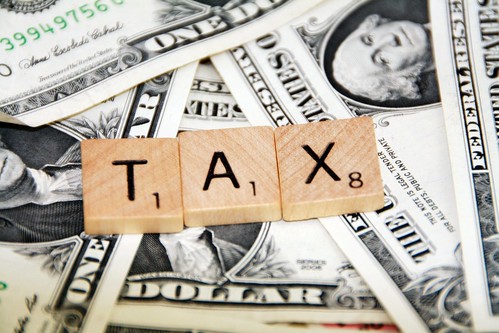
Can you keep your tax refund through a Chapter 7 bankruptcy? Maybe.
Everything you own when your Chapter 7 is filed makes up your “bankruptcy estate.” Usually, most or all of that “estate” stays in your possession and you can keep it because it’s exempt (protected). The bankruptcy estate includes not only your tangible, physical possessions, but also intangible ones—assets you own that you can’t physically touch—such as money owed, but not yet paid, to you. A tax refund can be an intangible asset that is part of your bankruptcy estate. Whether you can keep the tax refund depends on whether it is exempt.
Because an income tax refund usually comes from the overpayment of payroll withholding, the full amount of that refund has accrued by the time of your last payroll withholding of the tax year. So even though nobody knows the amount of your refund until your tax return is prepared a few weeks or months later, for bankruptcy purposes it is an asset of yours by January 1 of the next year. If you file a Chapter 7 case after the beginning of the next year and before you have received your tax refund, it is part of your bankruptcy estate and the trustee can keep however much of it that’s not exempt. This is also true if you have received the refund and not done anything with it (like if you haven’t deposited the check).
You can avoid possibly having a non-exempt tax refund by filing your tax return, receiving the refund, and appropriately spending it before your Chapter 7 case is filed. But first, you should seek advice from a bankruptcy attorney. Your bankruptcy trustee will be interested in what money you receive and spend before bankruptcy, which can be a source of problems if it is not done carefully.
Whether or not your tax refund is exempt depends on how much it is and whether you have room to exempt it. In some cases, using all or part of an exemption for your tax refund may reduce the availability of the exemption for other assets. Even if the refund, or a portion of it, is not exempt, the Chapter 7 trustee might not claim it if he or she decides the amount is not enough to open an asset case. That would be a case where the amount of refund is so small that the benefit of distributing it to the creditors is outweighed by the administrative cost involved. This threshold amount can vary from one court and/or one trustee to another so be sure to discuss this with your attorney. But if the trustee is collecting any of your other assets, then he or she will want every dollar of a non-exempt tax refunds.
There is a risk that you will not be able to claim an exemption if you don’t list the tax refund in your bankruptcy papers. Be sure to always list any tax refund to which you may be entitled.
These same principles apply year-round. By of July 1, you have had half a year of income-tax withholding deducted from your paychecks. A bankruptcy filed on on or after July 1 should take that into account, even though some trustees don’t push this issue much until closer to the end of the year, when of the potential tax refunds has accrued. Nevertheless, you should tell your bankruptcy attorney about income tax refunds expected in the next year, especially if you have a history of fairly large tax refunds.
Photo by 401K.

Hello. My Mother-In-Law filed chapter 7 bankruptcy here in Arizona in November of 2013. She was just told that her tax refund is being sent to the Trustee. Her refund is close to 10k. Why wouldn’t the Trustee explain everything in detail to her? Will she lose her entire refund?
In ohio, can a person keep any of his refund back in a chapter 7 BK?
Hi, thank you for the comment. Many aspects of bankruptcy are specific to the individual state and this is one of those types of questions. It would be best to seek advice from a good Ohio-based bankruptcy lawyer. Check the NACBA website for a referral
I am a bankruptcy paralegal and in my experience, yes the trustee can take whatever part of the return that isn’t exempt. Look up the State of Arizona bk exemptions and see if your case fits any exemptions you qualify for. Such as earned income credit and the wildcard exemption for Arizona. If not already listed, amend your schedule B & C. If your case is closed you may need to determine if it’s worth the court fee to re-open your case and add exemptions
Pingback: Tax On Bankruptcy | Hi there..!!!! :-)